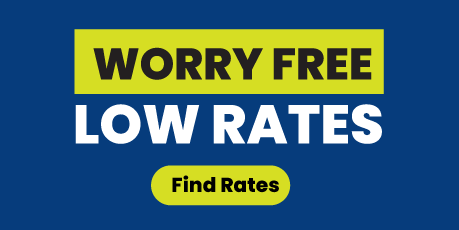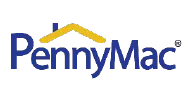Jumbo Cash Out Refinance

A jumbo cash-out refinance mortgage loan is a loan that works the same as most mortgages. The difference is a jumbo loan is for properties that exceed the conforming loan limits. A jumbo refinancing cash-out mortgage loan is a loan that replaces one loan with another.
Usually, the borrower will want to receive a lump sum of cash from refinancing their jumbo mortgage loan. There are many reasons a borrower may choose a jumbo cash-out refinance mortgage loan, such as getting money out of their equity, a lower interest rate, shorten or increase the term of the loan.
A borrower will need to know that cash-out refinancing a jumbo mortgage loan may require additional documentation and may need to meet higher standards than a traditional mortgage loan.
A jumbo cash-out refinance mortgage loan allows the borrower to convert their home equity into cash. The borrower may use the money for whatever they desire. For example, the funds may be used to pay off debt, college, home improvement, or repairs.
Things to Know When Cash Out Refinancing a Jumbo Mortgage Loan.
There are no rules regarding the timing a borrower may choose to refinance their jumbo mortgage loan. The borrower must remember that the lender may have higher standards for its borrowers.
There are a few qualifications needed to refinance a jumbo home loan. It may be more difficult to refinance a jumbo mortgage loan. Bigger loans may also have additional risks, which means lenders may be inclined to be pickier than they approve for a jumbo loan refinance.
Credit Score:
The exact credit score will depend on the lender's loan terms. The range is usually at least 700 or more. The credit score may vary due to the lender's qualifications.
Debt to Income Ratio (DTI):
The DTI will tell the lender the percentage of the borrower's monthly income compared to their monthly debt. This percentage will be placed and may vary by lender. The lenders hope a borrower has enough savings to cover any unforeseen circumstances. They may set the DTI at 36%.
Cash Reserves:
Most lenders will want to make sure their borrower has enough money saved to make sure they have enough to pay their mortgage payment in the event of any unforeseen financial hardships. The lender will set the amount required to cash reserves. The borrower will need to present bank statements to show their cash reserves.
Payment History:
Payment history is crucial for a borrower to qualify for the mortgage. If the borrower has been late, missed mortgage payments, or even has recent bankruptcy, they cannot secure a jumbo refinance mortgage loan.
Equity:
The lenders will require borrowers to have a certain amount of equity in their home before being considered for a jumbo refinance mortgage loan. The lenders have a Loan to Value (LTV), which is the home's appraised value compared to the amount the borrower would like to borrow.
Most lenders require a 20% to 30% home equity to approve a jumbo refinance mortgage loan.
Are Jumbo Cash Out Refinance Mortgage Loans Given to Borrowers Who Have Filled Bankruptcy or Had a Foreclosure?
Potential borrowers may need to wait for bankruptcy or foreclosure to fall off their credit report before applying for a jumbo refinance mortgage. The negative information may take 7 to 10 years to fall off the credit report.
The lenders may feel it is too risky, even if the potential borrower has a good credit score. The borrower will need to keep increasing their credit score as they wait.
What are the Advantages of a Jumbo Cash Out Refinance Mortgage Loan?
Jumbo Cash Out Refinance Mortgage loan advantages are similar to regular refinance mortgage loans. Below is a list of several features a borrower may opt to change.
Cash Out:
The borrower may take advantage of turning the equity in their home into cash. They will need to keep in mind by taking out a lump sum of money from their equity; they will, in turn, be adding to their principal amount owed on their mortgage.
Cash Out Limits:
With Jumbo cash-out refinance mortgage loans, there is no legal or formal limit. It all depends on the borrower's equity and if they qualify for the loan. Lenders may vary with their qualifications and limits.
Lengthen the Term of the Loan:
Lengthening the loan term may give the borrower a lower monthly mortgage payment. The downside is the borrower will pay more in interest over time.
Shortening the Term of the Loan:
Shortening the length of the jumbo mortgage loan may allow the borrower to pay off their mortgage sooner and pay less interest in the course of the loan.
Lower Interest Rate:
The interest rates may be lower at the time of the jumbo refinance than when a borrower first took out the original jumbo loan. A slight drop in the interest rate may save the borrower a lot of money.
Changing the Interest Structure:
A jumbo refinance mortgage loan may allow the borrower to adjust how they pay interest on their loan. If the borrower has an ARM, refinance to a fixed-rate mortgage may be the right move. ARM's interest may change throughout the jumbo mortgage loan.
Fixed-rate mortgages, the interest rate stays the same.
Higher mortgage financing:
The FHFA limits do not limit Jumbo Refinance Mortgage Loans.
-
Financial Liquidity:
The borrower may free up additional cash.
Single Payments:
The borrower may be able to pay off other loans with the jumbo refinance mortgage loan and only have to pay the mortgage payment.
Remove Private Mortgage Insurance (PMI):
If the borrower still has equity in the home, they may take advantage of removing PMI.
What are the Disadvantages of a Jumbo Cash Out Refinance Mortgage Loan?
Closing Costs:
The average closing costs on a jumbo refinance mortgage loan are generally higher than traditional refinancing as the principal is higher.
Manual Underwriting:
The borrower must ensure they are in the correct financial position before applying for a jumbo mortgage loan. A financial expert will process your bank statements, w-2s, and other personal documentation rather than underwriting software.
They are checking for any risky items the lender should be aware of. The review may include low cash reserves or adverse reporting on the borrower's credit report.
Possible Higher Interest Rates:
The borrower will need to make sure the interest rate is lower. Even minor differences in interest rates may add up quickly.
Limits of Cash-out Refinancing:
There are no legal limits on the amount of money taken out with a Jumbo Refinance Mortgage Loan. The limits may vary between lenders. The borrower needs to understand they are adding to their principal amount for their loan.
Longer Processing Time:
The jumbo refinance mortgage loan requires manual underwriting. This process may lengthen the time for processing. The lenders will take longer to examine the documentation due to the higher risks associated with a jumbo mortgage loan. Any items found by the manual underwriters will take time to fix.
What Documents Are Required for a Jumbo Cash Out Refinance Mortgage Loan?
The lender will need specific documentation from the borrower to start the jumbo cash-out refinance mortgage loan process. The borrower may need the following:
1. Two years of annual federal tax returns, including the w-2s.
2. Proof of income, most recent pay stubs.
3. Profit/Loss and balance sheet for self-employed borrowers.
4. Past 60 days of bank statements.
5. Document any other income, including commissions, bonuses, or other deposits.
What are the Steps to a Jumbo Cash Out Refinancing Mortgage Loan?
Lenders' requirements for a Jumbo Cash Out Refinance Mortgage Loans may vary. The borrower will need to follow these steps in most instances.
Choose a Lender:
The borrower may choose to work with their original lender or work with a new lender. Borrowers will need to do their research to select the lender that will work best for them.
Organize Important Documents:
The borrower will need to organize all necessary essential documents. These will need to be submitted to the lender.
Home Appraisal:
The lender will initiate the appraisal. They will have a professional appraiser appraise the borrower's home. The appraiser will report on the condition of the house, any improvements or upgrades made, and the home's square footage and will compare the value of homes in the borrower's area.
The appraiser will then write the appraisal, giving an up-to-date value of the borrower's home.
Complete the Underwriting:
The borrower may assist the underwriting process by having all of their essential, necessary documents ready. The underwriting will help the lender to understand the type of risk they are assuming by providing a jumbo refinance mortgage loan.
Schedule a Closing Date:
The lender will choose a closing date after the borrower has been approved. The borrower will need to be prepared to pay any closing costs.
The estimated closing costs are fees the lender charges to replace the borrower's current mortgage. The funding fee amount may be around 2% to 6% of the average closing costs of the total loan amount.
Finalizing the New Jumbo Refinance Mortgage Loan:
After the closing, the borrower will have a new mortgage with a new payment, interest rate, and loan term.
What are Some Frequently Asked Questions (FAQs) About Jumbo Cash Out Refinance Mortgage Loans?
Q. When Should a Borrower Refinance a jumbo mortgage loan?
While there are no rules about how long a borrower should wait before taking a lump sum of cash out of their jumbo cash-out refinance mortgage loan, a borrower needs to understand the lender may have stricter requirements.
The borrower may need to tidy up their credit report, DTI, and cash reserve requirements. If the borrower feels they meet the requirements, the lump sum of cash will meet their needs, the interest rates are lower, and the terms meet their needs, they should begin the application process. The borrower should retain 20% to 30% equity in their home.
Q. Should a Borrower use their current lender or choose a new one when refinancing a jumbo cash-out mortgage loan?
The borrower may use their current lender as they have already established a history with them. The existing lender already understands the borrower's financial situation.
The borrower's solid and on-time mortgage payment history will be positive for them when using their current lender.
The borrower may choose a new lender if the new lender offers better interest rates, terms, or loan limits.
The borrower will need to research and make an informed decision when choosing which lender they will continue the jumbo refinancing mortgage loan process
Q. How easy is it to qualify for a jumbo cash-out refinance mortgage loan?
The borrower may find it more challenging to qualify for a jumbo cash-out refinance mortgage loan, even though it may still be possible. The borrower will need to make sure they meet their lender's requirements.
Q. If they are self-employed, may a borrower get a jumbo cash-out to refinance a mortgage loan?
If self-employed, a borrower may get a jumbo cash-out to refinance a mortgage loan. They must provide the profit/loss statements from their last two federal tax returns. There may be other financial documents required, as each lender may vary.
Q. What if the borrower has a lot of debt? Will they still qualify for a jumbo cash-out refinance mortgage loan?
In cases where the borrower has a lot of debt, it may be the best choice to get a jumbo cash-out to refinance a mortgage loan. They must still meet the lender's qualifications. The lender may choose to pay the borrower's debt at the time of closing.
Conclusion:
While a jumbo cash-out refinance mortgage loan may be more challenging, it is possible. It is essential for a borrower to make sure they meet their lender's qualifications and that their home has the equity necessary for the loan. The borrower will need to keep in mind doing their research will be crucial to their success in refinancing a jumbo mortgage loan.
Additional Terms and Definitions of Mortgage Closing Costs:
Closing and closing fees are processing fees the borrower will need to pay their lender. Lenders charge these fees monthly in exchange for creating their loans.
Closing costs cover your home appraisal and searches on the borrower's home's title.
The specific closing costs the borrower will need to pay to depend on the loan type amount of loan they take and where they live.
When obtaining a super jumbo loan, borrowers must know the various closing costs associated with the mortgage closing process.
These costs can include the upfront payment, mortgage insurance premium, other monthly payments, mortgage payments, and fees, property taxes, interest payments, credit report fees, and more.
The average closing costs for a complete jumbo and super jumbo loan can range from 2% of the loan amount up to 5% of the total loan amount.
However, borrowers may reduce these costs by purchasing discount points, which allow them to pay a portion of their interest upfront.
In addition to the closing mentioned above costs alone, borrowers must consider other fees and expenses such as homeowners insurance, title insurance costs, underwriting fee, and owner's title insurance.
The loan estimate provided by the lender should estimate the estimated closing costs associated with the loan.
Both the borrower and the lender will agree upon the closing date. The borrower must pay property taxes and other closing costs by this date.
The borrower's real estate agent may also help borrowers navigate the closing process and may be able to negotiate some of the closing costs.
One discount point is equivalent to 1% of the total loan amount, and the discount points can help cover closing costs.
It is essential for borrowers to carefully review their loan estimate and ask questions about any fees or costs that they do not understand.
With proper planning and budgeting, borrowers may manage the various expenses of obtaining a jumbo-rate term loan.
The borrower's down payment is one of many things they must bring to the closing table when closing on a home.
Closing costs are expenses the borrower pays to their lender in exchange for loan services.
Many first-time home buyers must pay more attention to how much they'll need to bear in closing costs.
Some may need to learn there are ways to lower how much you'll pay.
Understanding closing costs can be tricky.
We'll give you an overview of everything you need to know about closing costs before you finalize your loan.
Closing costs cover your home appraisal and searches on your home's title.
The specific closing costs the borrower will need to pay depend on the loan type amount of loan they take, and where they live.
Attorney Fees
Some homebuyers will use an attorney to review their paperwork.
Hiring an attorney helps ensure that everything is in order. In some states, an attorney will be required to close a home legally. Attorney fees usually only amount to a few hundred dollars.
What Is an Escrow Account?
Escrow Accounts are legal arrangements in which a title company temporarily holds money or property until a particular condition has been met. These are used for property or real estate purchases.
The funds will be removed from the escrow accounts and added to the closing costs as monies paid.
In real estate, money may be placed in an account at the title company to act as a hold for the property.
The lender will also set up an escrow account for property insurance and annual property taxes. The funds will be divided into monthly payments and added to the monthly mortgage payment.
Local Government Fees:
Government recording charges are fees assessed by state and local government agencies for legally recording your deed, mortgage, and documents related to a borrower's home loan. The fee covers all of the government fees and taxes.
Private mortgage insurance (PMI):
What is the purpose of PMI?
PMI is a mortgage insurance a borrower might be required to pay for if they have a conventional mortgage. The typical rule is if the equity in the home is less than 20%, then mortgage insurance is added to the mortgage.
PMI protects the lender, not the borrower; if they stop making payments on their loan, the PMI policy will be awarded to the lender.
How much is PMI?
The charge for PMI premium rates is 0.58 percent on loan amounts up to 1.86 percent of the loan's original amount.
Will PMI ever drop off of loan?
Yes, when the first-rate mortgage loan to value reaches 78% to 80$.
What is Title Insurance?
Title insurance is a contractual obligation protecting against losses when a title to a property is not free and clear of defects.
Liens:
The right to keep possession of another person's property until a debt owed by that person is discharged and paid.
Encumbrances:
Encumbrances affect title, meaning that the owner's rights to the property are limited in some way. Those limitations sometimes continue even if the property is purchased by someone else.
Please read through this information, and if you have questions, we are here to assist.
Our expert mortgage officers are available to assist with any questions.
Please call us at 1-866-713-9292 or apply online.







